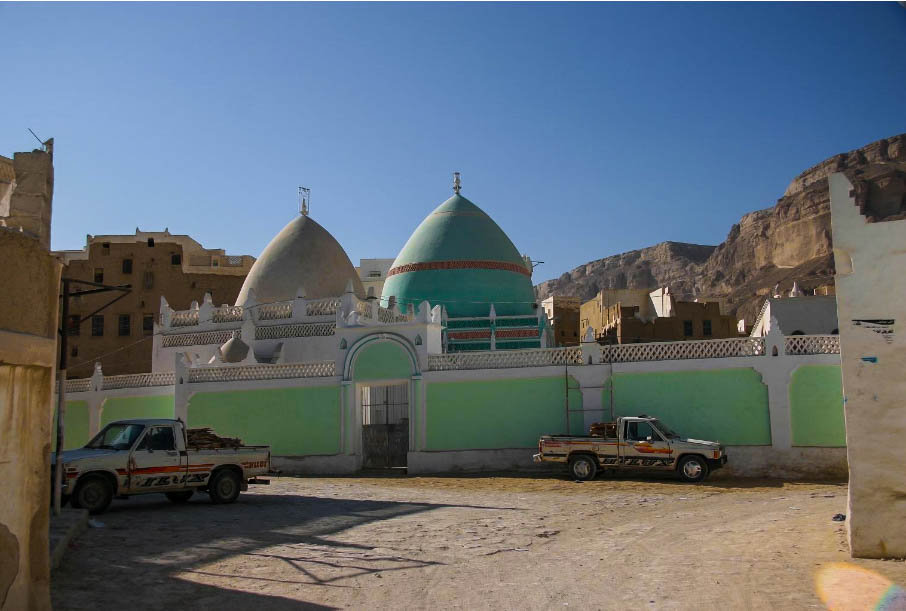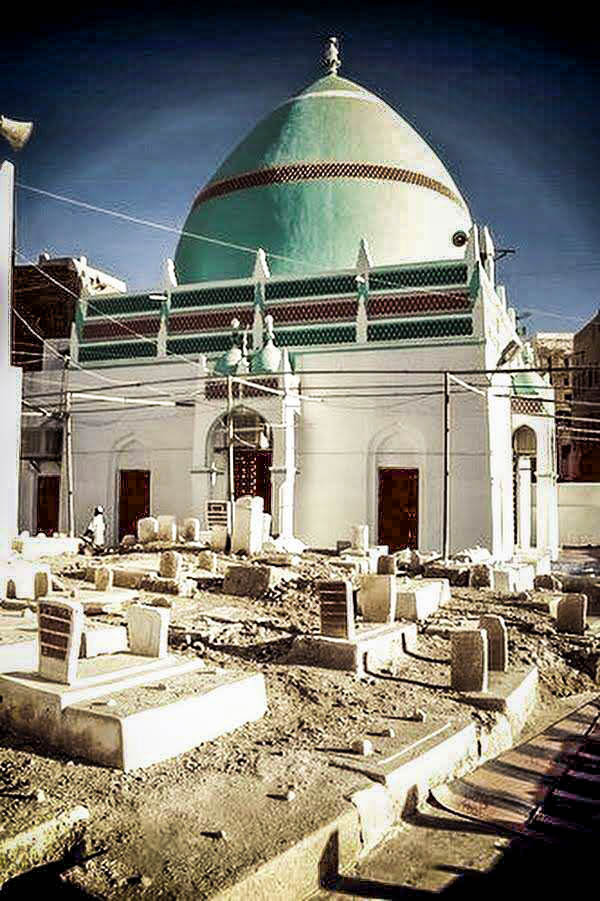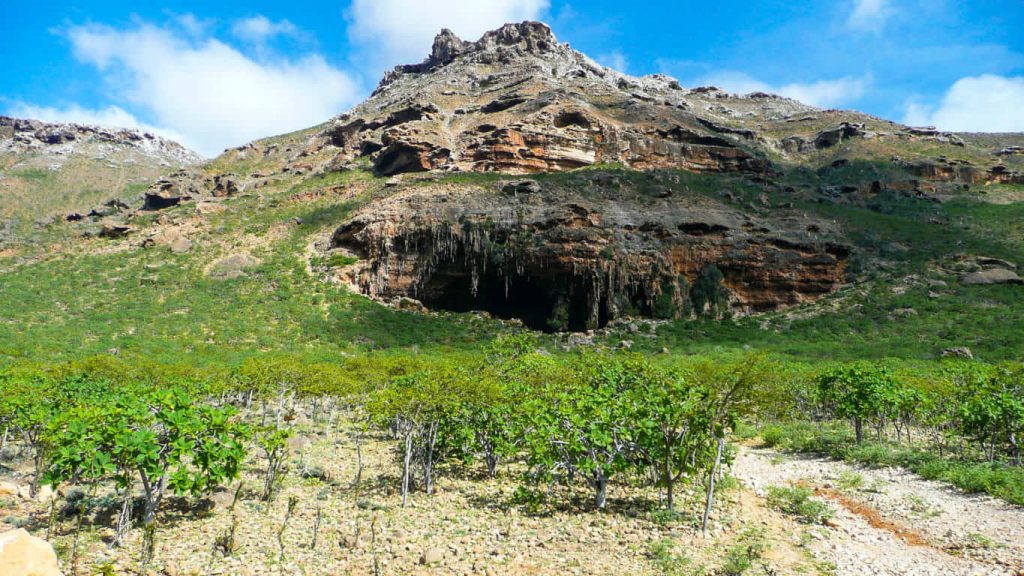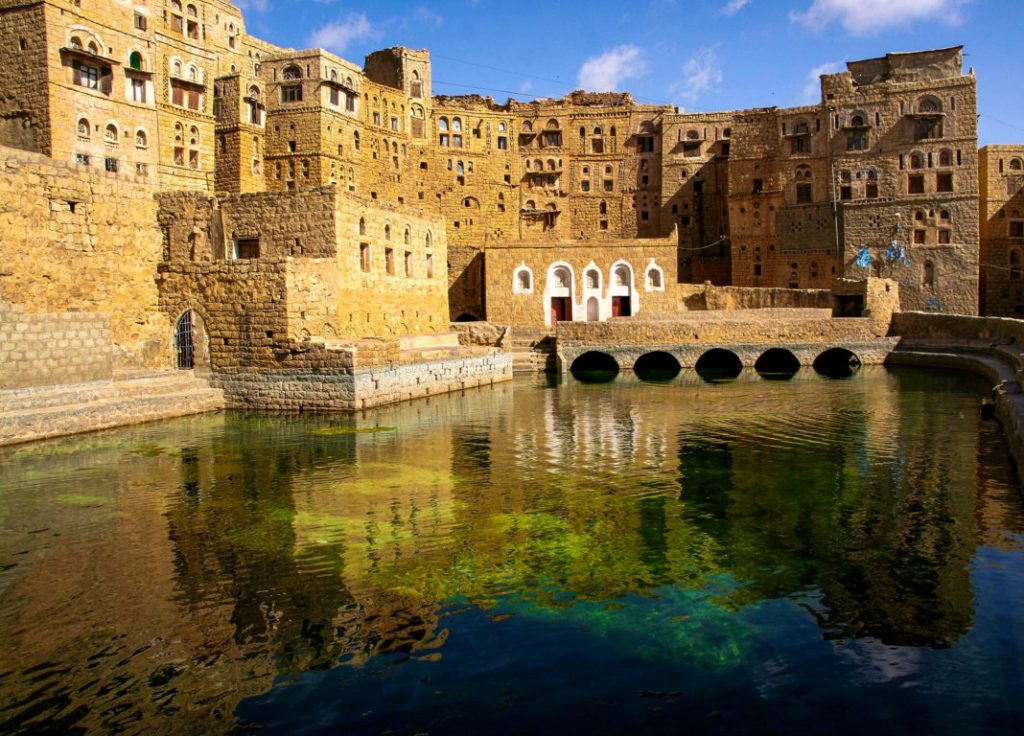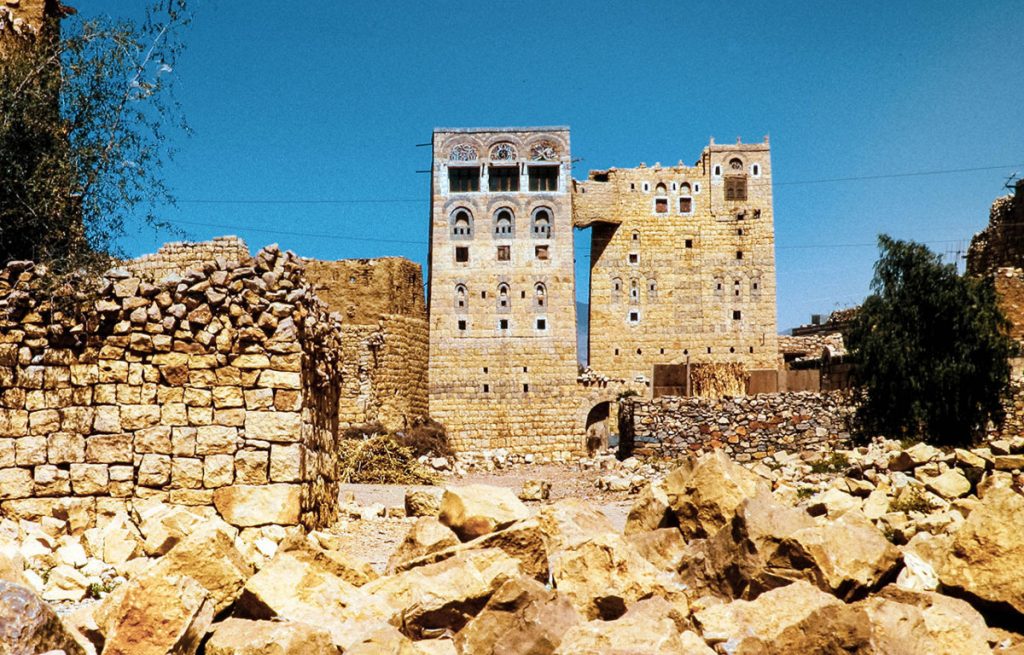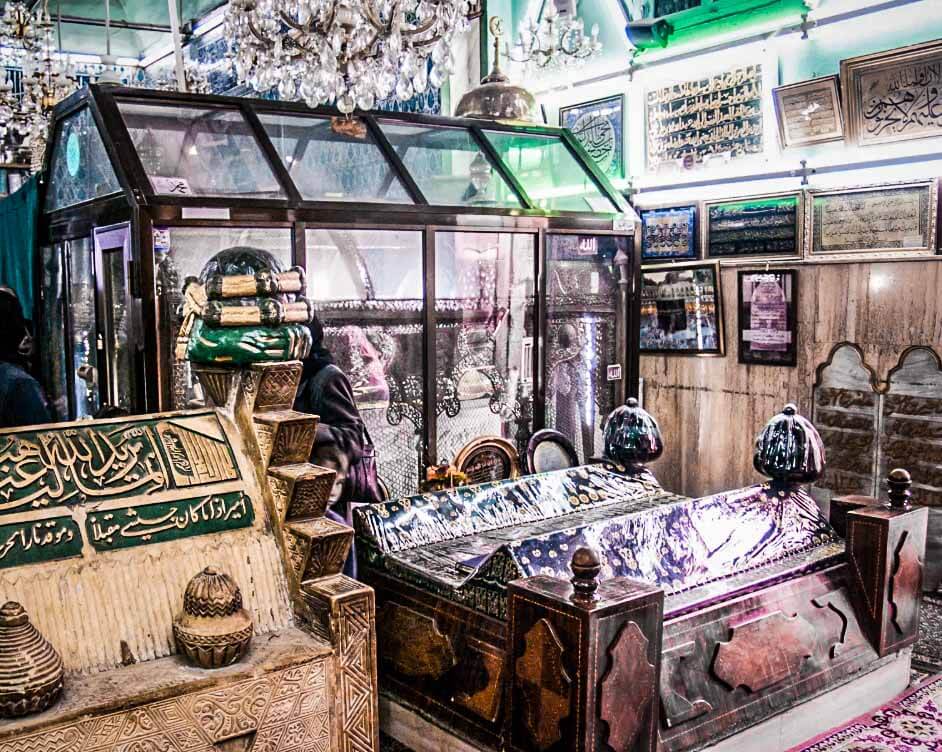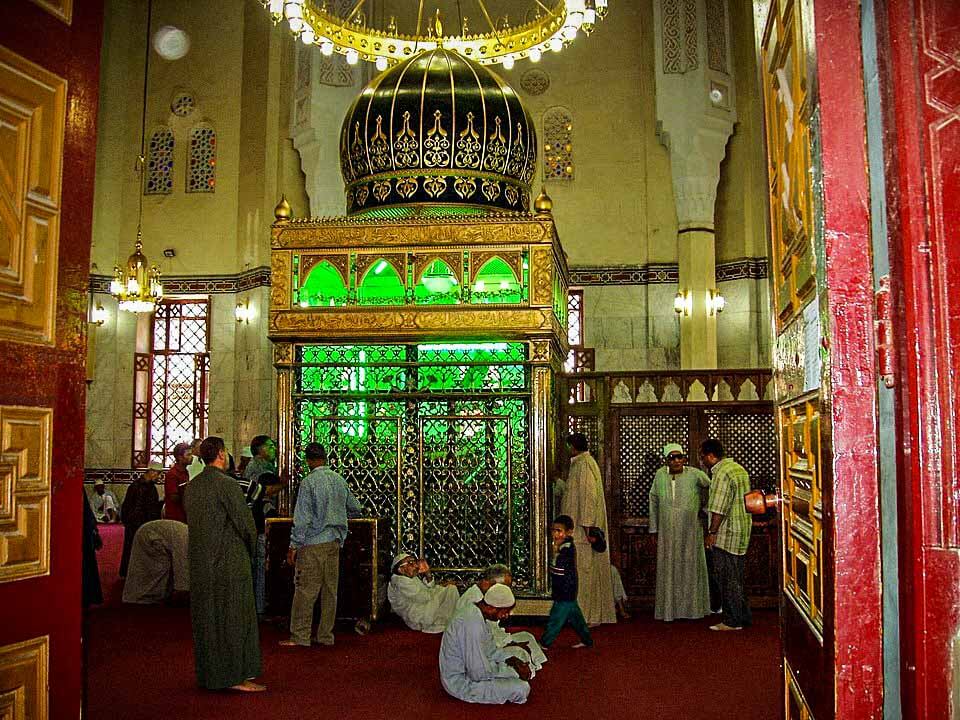Seiyun, Yemen
Coordinates: 15.951892, 48.808369
Nearby Places
- Al Kathiri Palace 2.63 Km W (255°)
- Tomb of Ahmad bin Isa al-Muhajir رحمة الله عليه 7.73 Km NE (60°)
- Tomb of Hz. Abdallah ibn Alawi al-Haddad رحمة الله عليه 22.72 Km NE (61°)
Birth
Hz. Habib Ali رحمة الله عليه was born in the town of Qasam, North East of Tarim, in 1259 (1843) at a time when his father, Habib Muhammad رحمة الله عليه , was calling to Allah in the area at the order of his shaykh, Habib Abdullah bin Husayn bin Tahir. It was Habib Abdullah who named him Ali.
Childhood
In 1266, Habib Muhammad moved to Makkah, where he became the Mufti of the Shafii school. Hz. Habib Ali رحمة الله عليه remained with his mother in Qasam where he excelled in the study of the Qur’an and the sciences of the Sacred Law until 1271, when they moved to Say’un. There he studied at the hands of Habib Abd al-Rahman bin Ali al-Saqqaf and Habib Muhsin bin Alawi al-Saqqaf and others.
Love for his Shaykh
He started teaching in Say’un in 1278 while still seeking knowledge at the hands of the scholars of the region. It was at this time that he was united with the shaykh at whose hand his greatest opening came, the Qutb Habib Abu Bakr bin Abdullah al-Attas. Hz. Habib Ali رحمة الله عليه spent around two years in Habib Abu Bakr’s رحمة الله عليه company and said: “If I was given the choice between the bliss of Paradise and sitting in the presence of Habib Abu Bakr, I would choose sitting in his presence.” Habib Abu Bakr informed Hz. Habib Ali رحمة الله عليه that he would be like a magnet that pulled people’s hearts to Allah.
His Taqwa
Hz. Habib Ali رحمة الله عليه then broadened his call to Allah, and Allah placed love for him in people’s hearts. He said: “I do not see a net more effective in capturing immense gifts and divine knowledge than calling to Allah.” Out of his sincerity, if he stood up to give a public speech, people would cry before he even opened his mouth. The mercy that he had for creation was such that he would not sleep before making tawbah on behalf of the whole Ummah and asking Allah to guide the scholars, teach the ignorant and pardon the wrong-doers. He said: “My hope in Allah is that He will not punish a single person who lives in my time, and this is not a great thing for Allah.” His great companion on the path, Habib Ahmad bin Hasan al-Attas said of Hz. Habib Ali رحمة الله عليه: “Was he someone who prayed a lot or did not sleep at night or made an immense amount of dhikr? No. Rather, he loved his Lord and his Prophet Muhammad ﷺ and his predecessors, so they brought him to them and ordered him to speak with their tongue and to call to Allah as the direct deputy of the Prophet ﷺ.”
Along with his concern for the spiritual nourishment of the people, he also arranged financial support for numerous poor households. He had a great concern for students of knowledge and spent his wealth supporting them and his time educating them. In 1296, he built a Ribat or school in Say’un for students of knowledge, the first of its kind in Hadramawt. Students came from far and wide to study and live in the Ribat, which produced a large number of scholars and callers to Allah. A few years later, Hz. Habib Ali رحمة الله عليه built a mosque, Masjid al-Riyad, as an extension of the Ribat.
Love for the Prophet ﷺ and Simt al-Durur
Hz. Habib Ali رحمة الله عليه is best known for his immense connection to the Messenger of Allah ﷺ On one of his visits to him in al-Madinah, the Prophet ﷺ gave him the good tidings that his actions and the actions of his companions had found acceptance with Allah.
He established an annual gathering of mawlid in Say’un on the last Thursday of the month of Rabi al-Awwal which up to 40,000 people attended, all of whom Hz. Habib Ali رحمة الله عليه provided with food and accommodation.
The mawlid compositions of Imam al-Daybai was recited in the gathering until in, 1327, Hz. Habib Ali رحمة الله عليه composed his masterpiece, Simt al-Durur, which he described as a “gift to those of later generations, for in it is an exposition on the state of the Prophet ﷺ.” The fame and popularity of Simt al-Durur rapidly spread and it continues to be one of the most popular and widely read of all the mawlid compositions.
Poetry and Darood sharif
Hz. Habib Ali رحمة الله عليه’s poetry, which reached six volumes, likewise found acceptance throughout the Muslim world. His collected prayers upon the Prophet ﷺ are also evidence of his love and connection to him. One of his well-known prayers is:
اللَّهُمَّ صَلِّ وَسَلِّمْ عَلَى سَيِّدِنَا مُحَمَّدٍ مِفْتَاحِ بَابِ رَحْمَةِ اللَّهِ، عَدَدَ مَا فِي عِلْمِ اللَّهِ، صَلاةً وَسَلامًا
دائِمَيْنِ بِدَوَامِ مُلْكِ اللَّهِ، وَعَلَى آلِهِ وَصَحْبِهِ
“O Allah, bestow prayers and peace upon our Master Muhammad ﷺ, the key to the door of the mercy of Allah, to the extent of the knowledge of Allah, which continue eternally as the dominion of Allah continues eternally, and upon his Family and Companions.”
His Passing Away
He died in Say’un on 20th Rabi al-Thani 1333 (1915). A great dome was erected over his grave to accommodate visitors and gatherings of knowledge and remembrance which continue to this day. His hawl, or annual commemoration of his passing, is a great event in the calendar of Hadramawt and thousands come to connect to and remember this great Imam. A similar hawl takes place in Solo in Java where a number of his progeny are buried. He left behind a number of children, the most celebrated being his son, Habib Muhammad, who succeeded him, and his daughter, Hababah Khadijah, one of the most pious women of her day.


